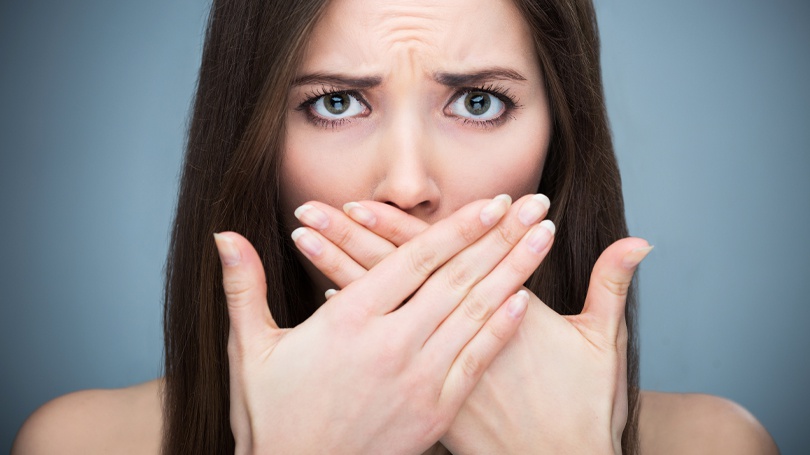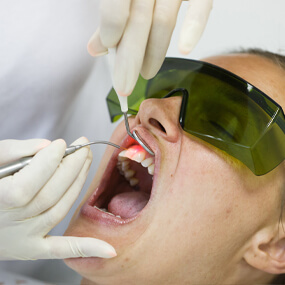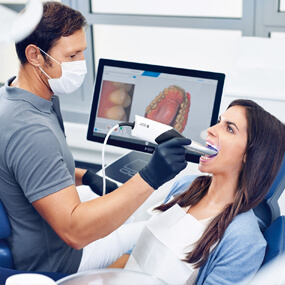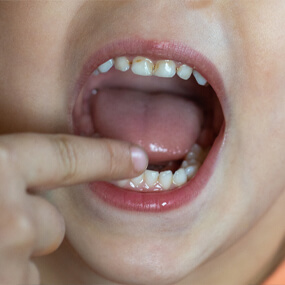Win the Battle Against Bad Breath

Bad breath happens to us all on occasion. You lead a busy life involving work, school, errands, chores, and so on, and sometimes it seems like there is greater demand for your time than actual time. Bad breath happens. It is embarrassing and can make an already hard day worse.
The good news is that there are techniques that you can use to eradicate halitosis on a consistent basis and on those occasions where it sneaks up on you. But it all starts with understanding what bad breath is, why it happens, and what you may be doing wrong on a regular basis to encourage it.
What Is Bad Breath and What Causes It?
Bad breath is caused by bacteria in your mouth, which there is a lot of. Oral bacteria are natural, and when everything is going well, bad bacteria are kept in balance, and odors are suppressed. When that balance gets out of whack, unpleasant odors can take center stage. Imbalances are caused by:
- Dry mouth—Saliva is integral to washing food particles and bacteria from your teeth and gums. Saliva also serves as a suppressant for the aspects of bacteria that cause disagreeable smells.
- Certain foods—Specific foods can make you more prone to bad breath, such as onions and garlic. Onion, for instance, does not just linger in your mouth but breaks down into a benign gas that is not metabolized. This gas leaves your body when you exhale, which is what causes the bad breath.
- Tobacco use—Using tobacco leaves behind a great deal of foul-smelling residue not only in your mouth but in your lungs, and those substances mix with your breath whenever you exhale.
- Infection or disease—Even acid reflux and sinus infections can contribute to bad breath.
- Poor oral hygiene—Poor oral care makes you more prone to bad breath. If you have developed gum disease, tooth decay, or other oral health issues, your halitosis will be much more persistent.
Keeping Your Breath Fresh While Keeping Busy
It is often not convenient to brush and floss after every meal, and the American Dental Association even advises against brushing more than twice a day. But that does not mean that all is lost.
- Hydrate—Most people do not drink enough water, and even light dehydration curbs saliva production, which makes you more prone to bad breath. Sip water throughout your day. Choose water as your main beverage, and be sure to drink it with and after every meal and snack.
- Green tea—When you need a water alternative or something hot, green tea is an excellent option. It not only has oral health benefits but is known to suppress the bacteria associated with bad breath.
- Sugar-free gum—Sugar-free gum is an excellent bad breath fighter because it promotes saliva production. Choose a product with xylitol to inhibit plaque, which also leads to bad breath.
- Healthy snacks—Opt for snacks that involve fibrous vegetables, fruits with vitamin C, and nuts. A mixture of said items will not only be filling but help protect your breath as well.
- Breath sprays—Breath sprays and mints do work in a pinch. Make sure that they are sugar-free and low in acids, and be mindful that such remedies will not correct underlying issues.
- Home remedies—Natural remedies that work include parsley and anise, and fennel seeds.
- Travel kit—Keep a travel kit with a toothbrush, toothpaste, and a bottle of water in the car or office. This is not for everyday use but can really do wonders in an emergency.
Do Oral Care Products for Bad Breath Work?
Many do, but often, chewing sugar-free gum with a mint flavor is just as effective. In addition, if there is an underlying problem causing the bad breath, the halitosis will just return.
- Scrape your tongue—Even if you brush and floss twice a day, your tongue can harbor a great deal of bad breath-causing bacteria. Scrape your tongue whenever you brush your teeth.
- In addition to keeping hydrated, rinse vigorously with water after every meal or snack.
- Keep sugar-free gum or mints on hand to keep the saliva flowing and the breath fresh.
Talking to Your Dentist
If you are practicing good oral hygiene, bad breath should not be an ongoing problem. If you notice bad breath often, especially after you have just brushed, flossed, and scraped, that could be an indication of an underlying oral health issue such as gum disease or tooth decay. Discuss it with your dentist during your next visit, and if you do not see a dentist regularly, schedule an appointment right away.
Beat Back Bad Breath
Bad breath happens to everyone, but it is not an issue you have to deal with often. Good oral hygiene at home, as well as regular cleanings and checkups at Scottsdale Cosmetic Dentistry Excellence, can make a big difference. If you have concerns about your breath, be sure to discuss them with Jeffrey D. Clark, DDS. Dr. Clark is a highly experienced and compassionate dentist who has helped many patients identify the cause of their halitosis and overcome it. Call 480 585 1853 today to schedule your appointment.




